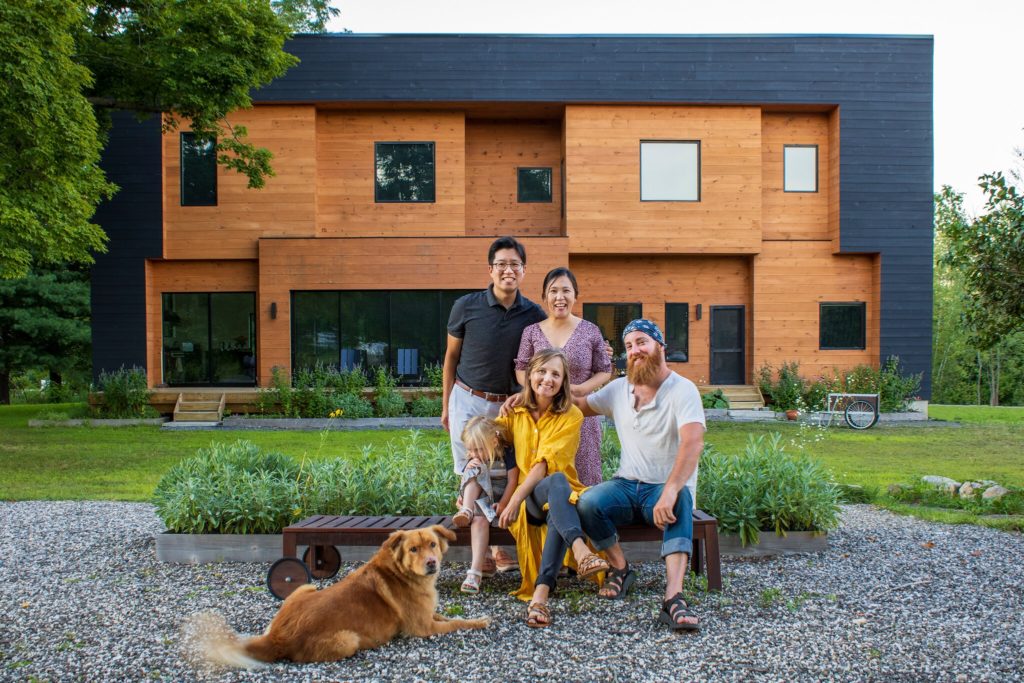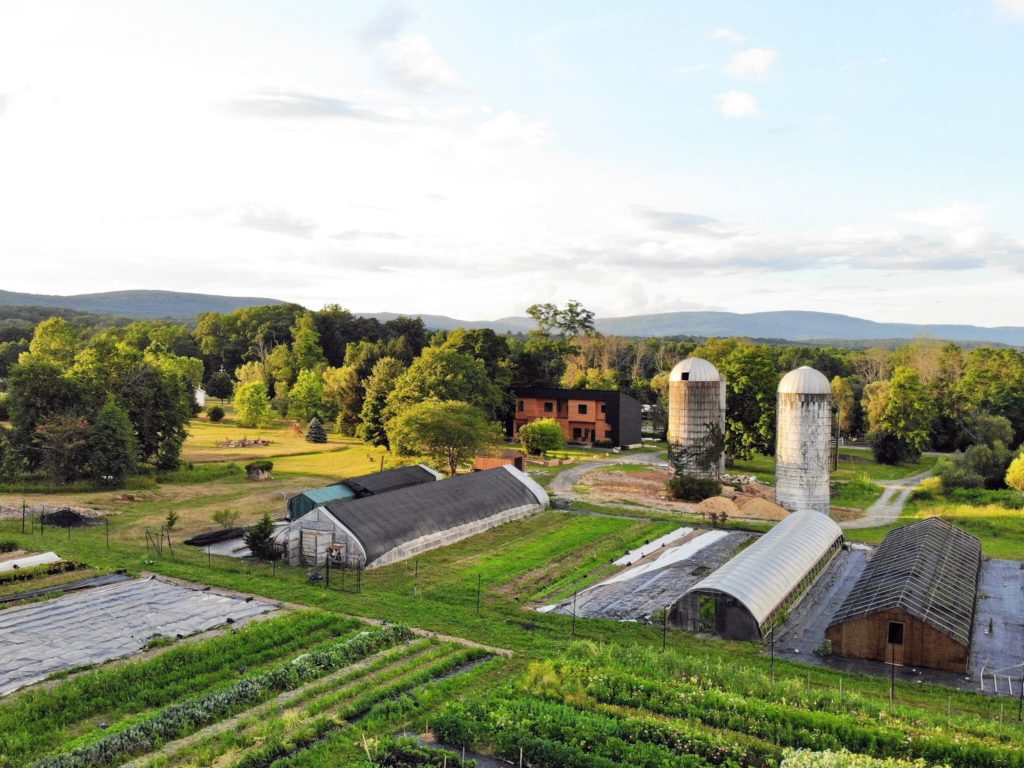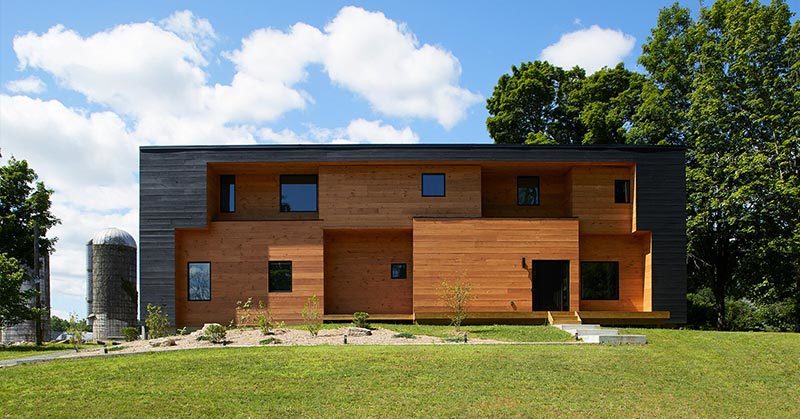Many people who live in the city choose to have a place in the country to get away from the hustle and bustle. Whether it’s a cabin in the woods, or a beach house on the ocean, a vacation home to get away on the weekends is a welcome escape for many city-dwellers. One New York City couple decided they also wanted a place in the country but took a much more unconventional route: they chose to buy their dream farm. The only catch? Neither of them are farmers.
For the Love of Food
Claire Ko and Eugene Kwak had been shopping at the Union Square Greenmarket for years. During that time, they became increasingly curious about where their food was actually coming from.
Claire, a 38-year-old chief people officer at a cheese company, and 40-year-old Eugene, an architect, decided to take their curiosity to the next level. Their idea? Buy some land, give most of it to a young farmer, and build a two-family house where they could all live together. At least, that’s what Eugene began dreaming of.
Born and raised in Seoul, South Korea, Claire considered herself a city girl, and initially had some reservations.
“I’ve only lived in cities. I don’t know anything about living in a house, or even a suburb,” she said [1].
Despite having no real rural-living experience, Eugene was much less deterred. He had been exposed to the culinary scene living in the city, which sparked his interest in food systems.

“I wanted to combine food systems with my design abilities, and try to create something that was innovative,” he explained [1].
Eugene spent the next two years learning everything he could about farming. He also spent much of that time searching for a place to put his dream farm.
To help his learning process, he volunteered at Stone Barns Center for Food and Agriculture, at Glynwood Center for Regional Food and Farming, and attended farming workshops.
Read: Teenagers Gain Confidence Raising Bees and Growing Crops at North Carolina Farm
The Dream Farm
In march 2018 the couple bought a sixteen-acre plot in Crawford, New York, in Orange County for 175 thousand dollars. The land used to be part of a dairy farm but was now unused. They named the project Togather.
Eugene designed the home himself which contains two apartments. The larger, two thousand-square-foot main unit was for them, and the smaller, one thousand-square foot unit would be for a farmer tenant. Construction was completed in February 2019, with a total cost of 630 thousand dollars.
In an effort to help a farmer establish a farm, they decided to offer a free thirty-year lease on up to five acres of the land. They put the rental price for the home at 1100 dollars per month, well below the average rental cost in the area.
“I wanted to really support and empower young and beginning farmers,” Mr. Kwak said [1].
They used a website called the Hudson Valley Farmland Finder, which connects landlords to farmers, to find their tenants.
After dozens of interviews, Eugene and Claire chose to give the spot to Melissa Phillips and Jack Whettam. 34-year-old Whettam had previously worked as director of sales at a golf company, and Phillips had a master’s degree in sustainability.
After giving birth to their daughter, however, the young couple realized they wanted something different out of life. They then spent some time at Kern Family Farm in North Fork, California, where they learned about regenerative farming.
Hidden Acre Farm
Along with Claire and Eugene, they started Hidden Acre Farm. They produce vegetables and flowers, which they sell at farmer’s markets in the city. Getting to that point, however, took a lot of hard work and money. Whettam and Phillips put their entire savings into the farm, and also used a loan.
“When we arrived, it was just a field of weeds,” said Whettam. “You’ve got to dig a well, and then you’ve got to get the water from the well to the crops…We put in cold storage for our vegetables, greenhouses, fencing. We farm organically and regeneratively, so a lot of investment went into improving the soil and bringing in compost and other soil amendments.” [1]
Initially, Kwok and Ko were splitting their time between the city and the country, but when the novel coronavirus hit New York City, the couple ended up staying at the farm for five months.
“Because of Covid-19, we spent a lot more time during spring at the property,” Ms. Ko said. “We were able to help with getting the market ready, harvesting, weeding.” [1]

Photo Credit: Jeff Cate
While the process was by no means easy, the level of joy they have received from the project has been immeasurable. They have built a high level of appreciation for what nature has to offer, and it’s possible that their dream farm has turned a city dweller into a countrywoman after all.

